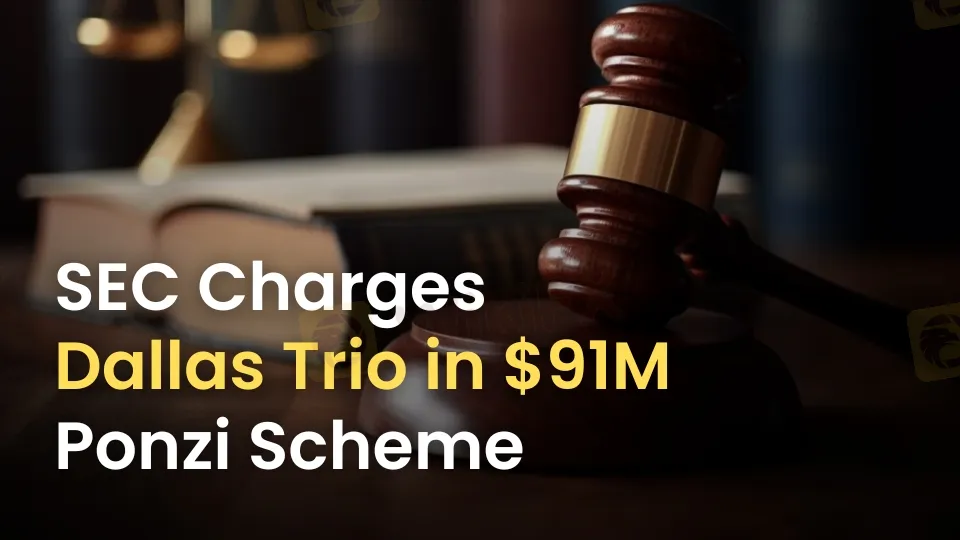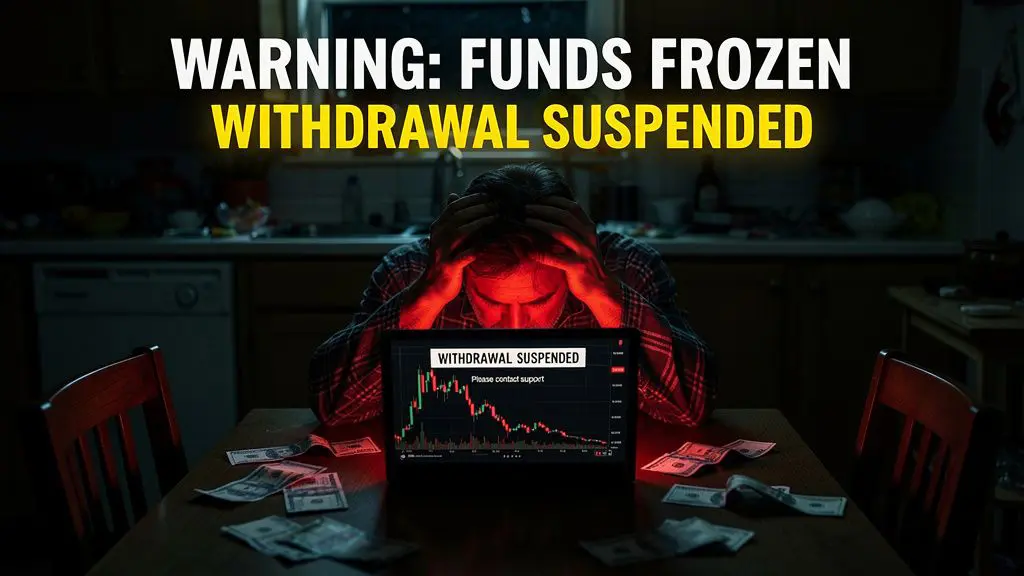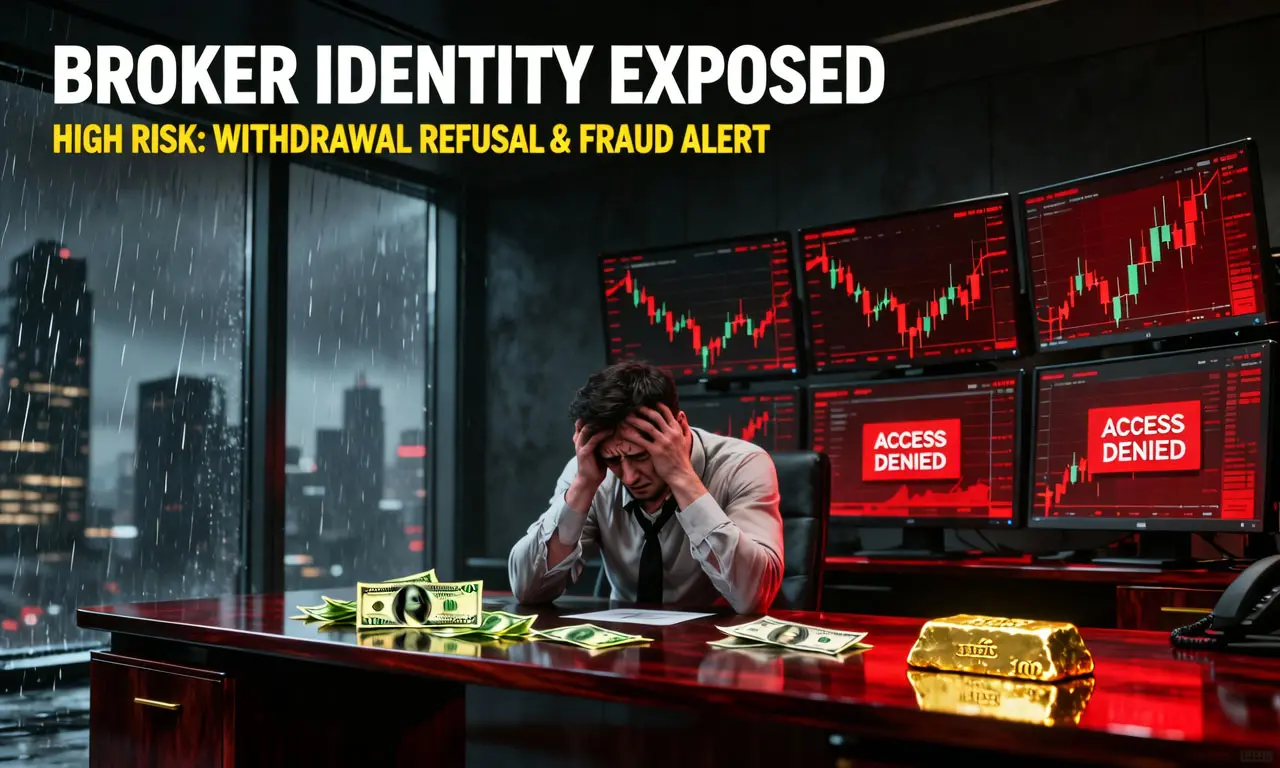Bybit to Restrict Services in Japan Amid Regulatory Pressure
Crypto exchange Bybit will limit access for Japanese users in 2025, citing compliance with strict local regulations.
简体中文
繁體中文
English
Pусский
日本語
ภาษาไทย
Tiếng Việt
Bahasa Indonesia
Español
हिन्दी
Filippiiniläinen
Français
Deutsch
Português
Türkçe
한국어
العربية
Abstract:The SEC charges Kenneth W. Alexander, Robert D. Welsh, and Caedrynn E. Conner for running a $91M Ponzi scheme, promising false returns and misappropriating funds.

The U.S. Securities and Exchange Commission (SEC) has charged three Dallas-Fort Worth residents—Kenneth W. Alexander II, Robert D. Welsh, and Caedrynn E. Conner—with running a massive Ponzi scheme that swindled over 200 investors out of at least $91 million. The fraudulent operation, spanning May 2021 to February 2024, promised lucrative returns but delivered devastating losses.
The SEC alleges that Alexander and Welsh masterminded the scam through the Vanguard Holdings Group Irrevocable Trust (VHG), a supposed powerhouse in international bond trading. They lured investors with “guaranteed monthly returns of between 3% and 6%” and assurances that principal investments would be repaid after 14 months. However, the SEC claims VHG was a sham with no real revenue, propped up by Ponzi-style payments using new investors money.
Caedrynn E. Conner played a key role by funneling over $46 million into VHG through his own entity, the Benchmark Capital Holdings Irrevocable Trust. Together, the trio peddled a fake financial product called a “pay order,” marketed as a safeguard against losses, but the SEC says it was worthless. Instead of generating profits, Alexander and Conner allegedly siphoned off millions for personal gain, including Conners lavish $5 million home purchase.
Sam Waldon, Acting Director of the SEC‘s Division of Enforcement, condemned the scheme: “As we allege, the defendants conducted a large-scale Ponzi scheme that caused devastating losses to investor victims, while Alexander and Conner misappropriated millions of dollars of investor funds.” He reaffirmed the SEC’s resolve to pursue justice for defrauded investors.
Filed in the U.S. District Court for the Eastern District of Texas, the SEC‘s complaint accuses the trio of violating federal securities laws’ antifraud and registration rules. The agency is pushing for permanent injunctions, repayment of illicit profits with interest, and hefty civil penalties to hold them accountable.
This case underscores the dangers of Ponzi schemes masquerading as legitimate investments. Investors were drawn in by bold promises of steady returns and security, only to see their savings vanish. The SECs action serves as a stark reminder to scrutinize too-good-to-be-true opportunities in the financial world.

Disclaimer:
The views in this article only represent the author's personal views, and do not constitute investment advice on this platform. This platform does not guarantee the accuracy, completeness and timeliness of the information in the article, and will not be liable for any loss caused by the use of or reliance on the information in the article.

Crypto exchange Bybit will limit access for Japanese users in 2025, citing compliance with strict local regulations.

Reference to WikiFX records shows that **ExpertOption is a high-risk broker.** While the company has been operating since 2017 and has a popular trading app, the safety foundations are weak.

If you are looking into ICM Capital (also known simply as ICM), you might be attracted by their established history since 2017 or their access to the MetaTrader platforms. However, glancing at the surface isn't enough when your capital is at risk. With a concerning WikiFX Score of 2.46 out of 10, this broker is currently flashing warning signals that every potential client needs to understand before hitting the "Deposit" button.

The first batch of victims involved in the BSN investment scam has received full refunds from Bank Simpanan Nasional (BSN), according to Sarawak DAP chairman and Stampin MP Chong Chieng Jen.
